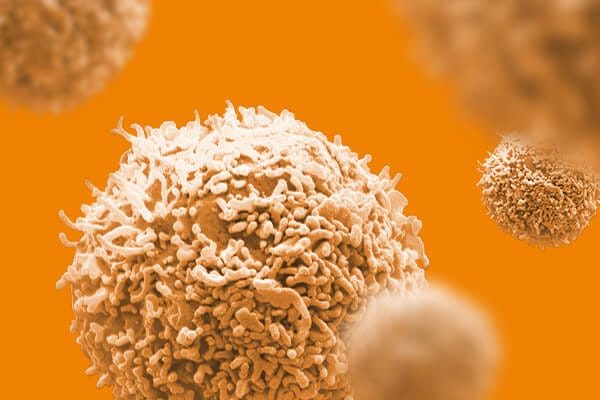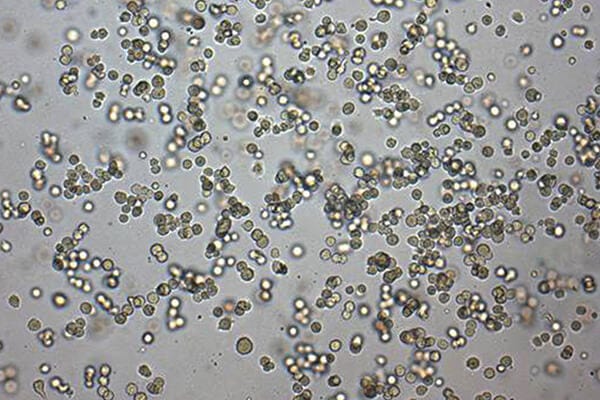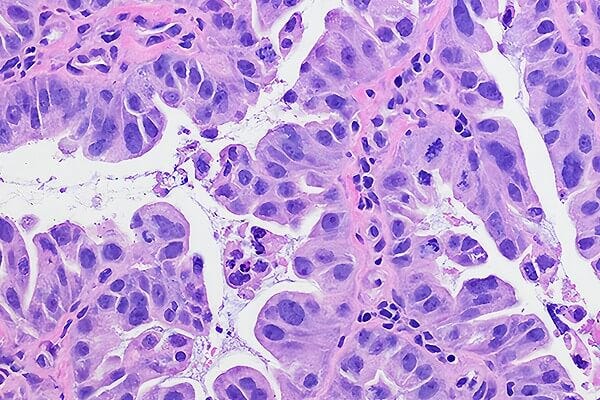Scientific Resources
-
 文献Wang W et al. (MAY 2016) Cell 165 5 1092--105
文献Wang W et al. (MAY 2016) Cell 165 5 1092--105Effector T Cells Abrogate Stroma-Mediated Chemoresistance in Ovarian Cancer.
Effector T cells and fibroblasts are major components in the tumor microenvironment. The means through which these cellular interactions affect chemoresistance is unclear. Here,we show that fibroblasts diminish nuclear accumulation of platinum in ovarian cancer cells,resulting in resistance to platinum-based chemotherapy. We demonstrate that glutathione and cysteine released by fibroblasts contribute to this resistance. CD8(+) T cells abolish the resistance by altering glutathione and cystine metabolism in fibroblasts. CD8(+) T-cell-derived interferon (IFN)γ controls fibroblast glutathione and cysteine through upregulation of gamma-glutamyltransferases and transcriptional repression of system xc(-) cystine and glutamate antiporter via the JAK/STAT1 pathway. The presence of stromal fibroblasts and CD8(+) T cells is negatively and positively associated with ovarian cancer patient survival,respectively. Thus,our work uncovers a mode of action for effector T cells: they abrogate stromal-mediated chemoresistance. Capitalizing upon the interplay between chemotherapy and immunotherapy holds high potential for cancer treatment. View Publication -
 文献Brooks SE et al. ( 2015) PloS one 10 10 e0140483
文献Brooks SE et al. ( 2015) PloS one 10 10 e0140483Application of the pMHC Array to Characterise Tumour Antigen Specific T Cell Populations in Leukaemia Patients at Disease Diagnosis.
Immunotherapy treatments for cancer are becoming increasingly successful,however to further improve our understanding of the T-cell recognition involved in effective responses and to encourage moves towards the development of personalised treatments for leukaemia immunotherapy,precise antigenic targets in individual patients have been identified. Cellular arrays using peptide-MHC (pMHC) tetramers allow the simultaneous detection of different antigen specific T-cell populations naturally circulating in patients and normal donors. We have developed the pMHC array to detect CD8+ T-cell populations in leukaemia patients that recognise epitopes within viral antigens (cytomegalovirus (CMV) and influenza (Flu)) and leukaemia antigens (including Per Arnt Sim domain 1 (PASD1),MelanA,Wilms' Tumour (WT1) and tyrosinase). We show that the pMHC array is at least as sensitive as flow cytometry and has the potential to rapidly identify more than 40 specific T-cell populations in a small sample of T-cells (0.8-1.4 x 10(6)). Fourteen of the twenty-six acute myeloid leukaemia (AML) patients analysed had T cells that recognised tumour antigen epitopes,and eight of these recognised PASD1 epitopes. Other tumour epitopes recognised were MelanA (n = 3),tyrosinase (n = 3) and WT1(126-134) (n = 1). One of the seven acute lymphocytic leukaemia (ALL) patients analysed had T cells that recognised the MUC1(950-958) epitope. In the future the pMHC array may be used provide point of care T-cell analyses,predict patient response to conventional therapy and direct personalised immunotherapy for patients. View Publication -
 文献Pospori C et al. (JUN 2011) Blood 117 25 6813--24
文献Pospori C et al. (JUN 2011) Blood 117 25 6813--24Specificity for the tumor-associated self-antigen WT1 drives the development of fully functional memory T cells in the absence of vaccination.
Recently,vaccines against the Wilms Tumor antigen 1 (WT1) have been tested in cancer patients. However,it is currently not known whether physiologic levels of WT1 expression in stem and progenitor cells of normal tissue result in the deletion or tolerance induction of WT1-specific T cells. Here,we used an human leukocyte antigen-transgenic murine model to study the fate of human leukocyte antigen class-I restricted,WT1-specific T cells in the thymus and in the periphery. Thymocytes expressing a WT1-specific T-cell receptor derived from high avidity human CD8 T cells were positively selected into the single-positive CD8 population. In the periphery,T cells specific for the WT1 antigen differentiated into CD44-high memory phenotype cells,whereas T cells specific for a non-self-viral antigen retained a CD44(low) naive phenotype. Only the WT1-specific T cells,but not the virus-specific T cells,displayed rapid antigen-specific effector function without prior vaccination. Despite long-term persistence of WT1-specific memory T cells,the animals did not develop autoimmunity,and the function of hematopoietic stem and progenitor cells was unimpaired. This is the first demonstration that specificity for a tumor-associated self-antigen may drive differentiation of functionally competent memory T cells. View Publication
过滤器
筛选结果
类别
- Educational Materials
- Areas of Interest
- Methods Library
Show More
Show Less
产品系列
- EasySep 2 项目
- RosetteSep 1 项目
- StemSpan 1 项目
Show More
Show Less
资源类别
- 文献 3 项目
Show More
Show Less
细胞类型
- B 细胞 134 项目
- CD4+ 84 项目
- CD8+ 48 项目
- Endoderm 1 项目
- Neural Cells 17 项目
- NK 细胞 79 项目
- PSC-Derived 18 项目
- PSC衍生 6 项目
- Regulatory 11 项目
- T Cells 56 项目
- T 细胞 252 项目
- 上皮细胞 47 项目
- 乳腺细胞 68 项目
- 先天性淋巴细胞 3 项目
- 内皮细胞 2 项目
- 前列腺细胞 7 项目
- 单核细胞 106 项目
- 多能干细胞 1692 项目
- 心肌细胞 3 项目
- 杂交瘤细胞 76 项目
- 树突状细胞(DCs) 59 项目
- 气道细胞 40 项目
- 癌细胞及细胞系 116 项目
- 白细胞单采样本 1 项目
- 白血病/淋巴瘤细胞 8 项目
- 真皮细胞 1 项目
- 神经元 136 项目
- 神经干/祖细胞 384 项目
- 神经细胞 2 项目
- 粒细胞及其亚群 61 项目
- 肝细胞 3 项目
- 肠道细胞 13 项目
- 肾脏细胞 2 项目
- 脑肿瘤干细胞 81 项目
- 血小板 1 项目
- 血浆 3 项目
- 调节性细胞 7 项目
- 造血干/祖细胞 779 项目
- 间充质干/祖细胞 133 项目
- 髓系细胞 99 项目
Show More
Show Less


 EasySep™小鼠TIL(CD45)正选试剂盒
EasySep™小鼠TIL(CD45)正选试剂盒





 沪公网安备31010102008431号
沪公网安备31010102008431号